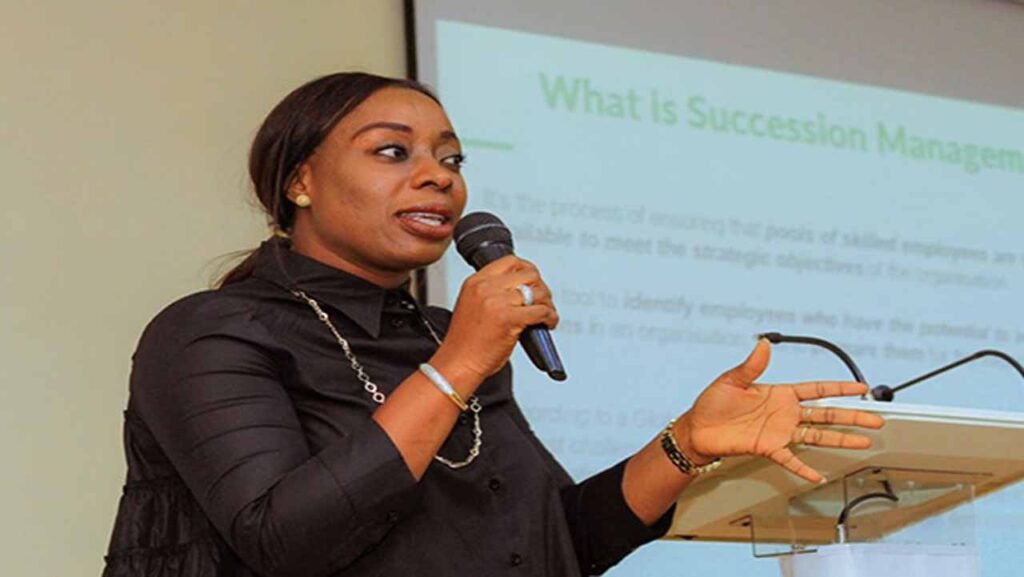The Chief Executive Officer of Enhancing Financial Innovation and Access (EFInA), Foyinsolami Akinjayeju, has stressed that affordable credit and the rapid expansion of fintech solutions are crucial to deepening financial inclusion in Nigeria.
Akinjayeju also noted that the eventual rollout of the Central Bank of Nigeria’s (CBN) Open Banking Framework would further strengthen access to innovative financial services.
She stated these at the EFInA’s hybrid Access to Finance (A2F) Stakeholder Engagement Workshop held in Lagos yesterday.
The event brought together regulators, banks, fintech operators, development partners and policymakers.
Akinjayeju said digital finance has become a strong driver of inclusion, noting that more Nigerians are turning to mobile banking platforms, agent networks, remittance channels and digital payments to meet daily needs.
These will be instrumental to achieving broader financial inclusion, she said.
Speaking on the sidelines at the workshop, Akinjayeju said: “I expect to see positive progress in financial inclusion, driven largely by fintechs and digital services. More people are engaging through mobile banking, agent networks, remittance platforms and digital payments. These will be instrumental to growth in inclusion.”
Nigeria’s financial inclusion rate stood at 74 per cent in 2023, with 64 per cent formally included, the latest EFInA’s survey said.
However, Akinjayeju cautioned that inclusion should not be measured only by access but also by consistent usage and the extent to which it improves lives through affordable credit.
She expressed concern over the decline in Nigeria’s financial health index, which dropped from 28 per cent in 2020 to 16 per cent in 2023, reflecting the inability of many households to save, plan, or manage risks.
EFInA boss also warned that the trend could persist if economic headwinds continue to pressure households.
She identified affordable credit and insurance as the weakest points in the financial inclusion landscape.
On the demand side, cultural aversion to borrowing and distrust of financial institutions remain barriers, she said, while noting that affordability continues to limit access.
“Affordability is key. How do we get affordable credit? Of course, the federal government has a role to play, and there are initiatives around credit enhancements and credit guarantees designed to push credit to the last mile at an affordable rate. What we need now is scale.
“If these efforts remain small and uncoordinated, they will never reach the millions who need them, and the affordability problem will persist. That is why we must also focus on literacy, helping people understand that just as there is good credit, there is also bad credit,” she noted.
On the much-anticipated Open Banking policy, Akinjayeju noted that the implementation of the framework would make a remarkable change in the financial inclusion journey.
She described it as a transformative policy that can provide alternative ways of assessing creditworthiness and broadening access to financial services.
“Open Banking is a phenomenal initiative. With customer consent, it allows financial providers to use alternative data such as airtime or utility payments to assess creditworthiness. This could help millions without traditional histories access credit,” she explained.
The engagement was aimed at getting inputs from critical stakeholders ahead of the 2025 edition of the survey, which has continued unbroken for 18 years.

